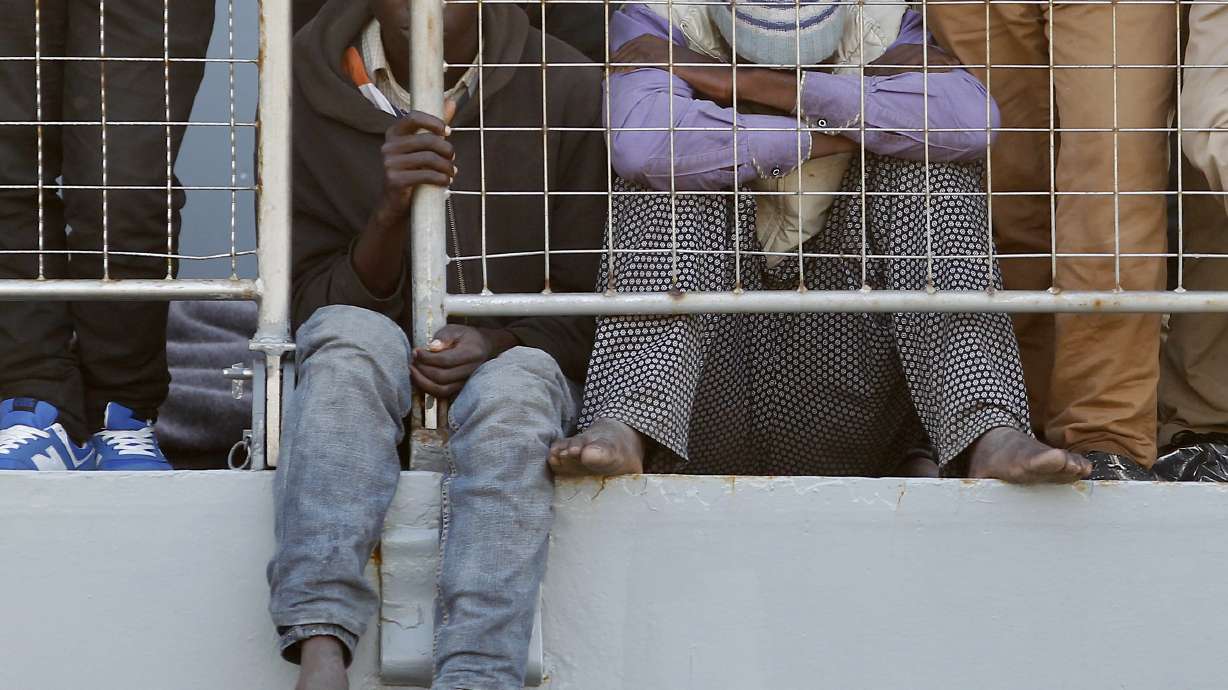Estimated read time: 3-4 minutes
This archived news story is available only for your personal, non-commercial use. Information in the story may be outdated or superseded by additional information. Reading or replaying the story in its archived form does not constitute a republication of the story.
BRUSSELS (AP) — European Union plans to introduce a quota system obliging countries to share the burden of settling refugees unraveled Friday as member nations began rejecting the scheme.
Hungary, Slovakia and Estonia are among those to publicly object to a quota system, which would require unanimous agreement among the 28 EU nations.
"This is not solidarity. It is an unfair, unrighteous and dishonorable proposal which we cannot accept," Hungarian Prime Minister Viktor Orban said on state radio. "It is a crazy idea for someone to let refugees into their own country, not defend their borders, and then say: 'Now I will distribute them among you, who did not want to let anyone in.'"
In a statement to The Associated Press, Slovakia's interior ministry said that it "currently refuses binding quotas on migrants." Estonia said it prefers voluntary relocation and resettlement for refugees.
German Chancellor Angela Merkel acknowledged that it will be "hard work" to put a quota system in place but said there was "a large group of countries" in favor. Merkel said she was "convinced that we will not be able to do without a solution in solidarity in Europe."
Germany, along with Sweden and France, is among a handful of countries accepting refugees.
The EU's executive Commission was to propose the plan next Wednesday as part of a strategy to help frontline countries Italy, Greece and Malta cope with thousands of migrants.
"We need a binding solidarity mechanism that allows for the fair distribution of asylum seekers among member states once a certain threshold has been reached," said Roberta Metsola of Malta, a lead EU lawmaker on migration. "This is not a challenge that Italy or Malta or Greece should face alone."
EU leaders offered short-term use of ships, planes and other assets to help stem the tide, as well as extra funding for the EU border effort, earlier this month at a hastily called summit meant to address migrant deaths in the Mediterranean.
But away from the media spotlight, weak economies, public opposition to migration and election campaigns mean that real solidarity remains elusive.
According to the U.N. refugee agency, some 26,228 migrants have arrived in Italy alone from the sea so far this year, about the same rate as 2014. Some 1,700 are feared to have drowned during the crossing from Libya in unseaworthy boats, far more than last year.
Some legal experts are calling on the Commission to enforce a provision of the EU's governing Lisbon Treaty that policies "shall be governed by the principle of solidarity and fair sharing of responsibility."
"There is a breach of EU law on that point. It is not implemented enough by the institutions," said Brussels-based migration law professor Philippe De Bruycker.
While the Commission does take action against members on budgets or state aid, it would be setting a precedent by trying to enforce EU migration agreements.
___
Pablo Gorondi in Budapest, Geir Moulson in Berlin and Nicole Winfield in Rome contributed to this report.
Copyright © The Associated Press. All rights reserved. This material may not be published, broadcast, rewritten or redistributed.








